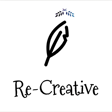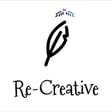
Terry Fallis: Paris in the 20s
Joe and Mark are joined by beloved and bestselling Canadian author, Terry Fallis.
Terry's fiction has won the Leacock Medal for Humour twice, and his debut novel, Best Laid Plans, won Canada Reads in 2011. The annual CBC competition had a huge impact on his sales figures for that novel: more than 150,000 copies of the book to date. "Canada Reads made me a bestseller," he says, adding how grateful he is to the contest.
A replica of an old map of Paris, circa. 1928, decorates Terry's office walls. It, along with his old Underwood typewriter, remind him of a remarkable time in the history of writing – Paris in the 1920s.
"Paris and that particular period in history was such a critical time in the history of literature," says Terry.
The three have a lively and entertaining conversation about this period of literary history, the nature of writing, and a few bits of Canadian trivia as well.
Tune in and join in the fun.
For more info on this show, visit the show notes for this episode.
Re-Creative is a co-production of Donovan Street Press Inc. in association with MonkeyJoy Press.
Contact us: joemahoney@donovanstreetpress.com



